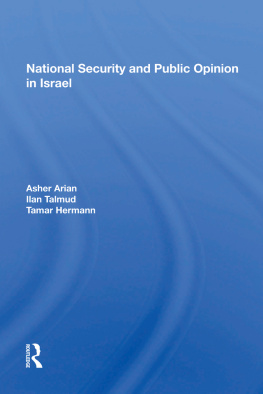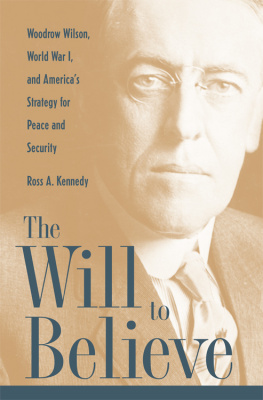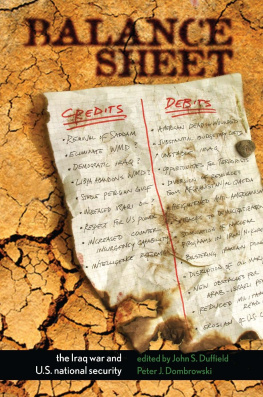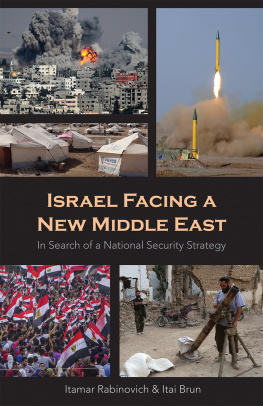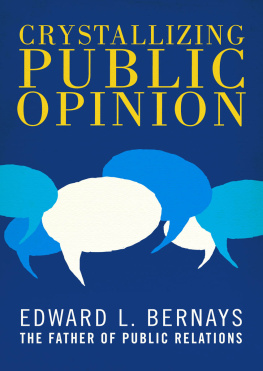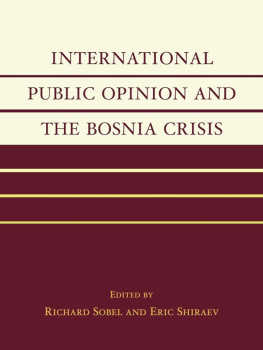First published 1988 by Westview Press
Published 2018 by Routledge
52 Vanderbilt Avenue, New York, NY 10017
2 Park Square, Milton Park, Abingdon, Oxon OX14 4RN
Routledge is an imprint of the Taylor & Francis Group, an informa business
Copyright 1988
Tel Aviv University
Jaffee Center for Strategic Studies
All rights reserved. No part of this book may be reprinted or reproduced or utilised in any form or by any electronic, mechanical, or other means, now known or hereafter invented, including photocopying and recording, or in any information storage or retrieval system, without permission in writing from the publishers.
Notice:
Product or corporate names may be trademarks or registered trademarks, and are used only for identification and explanation without intent to infringe.
ISBN 13: 978-0-367-00355-5 (hbk)
The Jaffee Center for Strategic Studies (JCSS)
The Center for Strategic Studies was established at Tel-Aviv University at the end of 1977. In 1983 it was named the Jaffee Center for Strategic Studies in honor of Mr. and Mrs. Mel Jaffee. The objective of the Center is to contribute to the expansion of knowledge on strategic subjects and to promote public understanding of and pluralistic thought on matters of national and international security.
The Center relates to the concept of strategy in its broadest meaning, namely, the complex of processes involved in the identification, mobilization and application of resources in peace and war, in order to solidify and strengthen national and international security.
International Board of Trustees
Chairman : Melvin Jaffee
Immediate Past Chairman: Joseph H. Strelitz (deceased)
Robert H. Arnow, Arnold Y. Aronoff, Newton D. Becker, Jack Berlin, Henry Borenstein, Edgar M. Bronfman, Simon Ghilewich, Stewart M. Colton, Lester Crown, Joseph E. Eichenbaum, Danielle and Shimon Erem, Allan Fainbarg, Dr. Gerald Falwell, Jacob Feldman, Arnold D. Feuerstein, David Furman, Guilford Glazer, Eugene M. Grant, Vernon Green, Irving B. Harris, Robert M. Hecht, Betty and Sol Jaffee, Philip M. Klutznick, Max H. Kranzberg, Raymond Kulek, Max L. Kunianski, Mark Lambert, Rose and Norman Lederer, Fred W. Lessing, Morrisi L. Levinson, Edward Levy, Peter A. Magowan, Hermann Merkin, Stephen Meadow, Joseph Meyerhoff, Monte Monaster, Max Perlman, Milton J. Petrie, Gary P. Ratner, Raphael Recanati, Meshulam Riklis, Morris Rodman, Elihu Rose, Malcolm M. Rosenberg, Irving Schneider, Marvin Simon, Ruth Sinaiko, Walter P. Stern, Dr. Robert J. Stoller, Leonard R. Strelitz, James Warren, David Warsaw, Jacob D. Weiler, Marvin A. Weiss, Emanuel A. Winston, Bart Wolstein, Paul Yanowicz, Mortimer B. Zuckerman.
The research for this
study was made possible
through the generous
contribution of
Lawrence A. Tisch
Democratic states are necessarily concerned with public support for public policy, especially regarding national security policy. This study undertakes (for the first time) to depict the patterns of public opinion in Israel regarding national security policy.
The world-view of the leaders of Israel has had an enormous impact on the way Israelis relate to the world and to the policies followed in national security matters and foreign affairs. The four major areas of concern were studied by reviewing statements of political leaders; they were then probed using a public opinion survey. The areas of concern were: (1) perceptions regarding the international environment; (2) the orientation toward war and the use of force; (3) evaluations of military force, political flexibility, and freedom of action in the international arena; and (4) the emotional base regarding security and national destiny.
Based on a representative sample of 1,172 Jewisn respondents conducted in January 1986, the survey explored topics such as consensus, rationality, army service, and social class.
The survey showed that a large portion of the Israeli population felt that the country could withstand major threats. On the other hand, persistent feelings of being threatened were also evident. On the whole, respondents thought that the state of security had been better five years ago and would be better five years hence compared to the situation when the survey was conducted. Yet, while most of them supported war for defensive purposes, offensive war was generally not supported, nor was the use of nuclear weapons.
A broad consensus regarding security existed. Israelis tended to be confident that the "Guardian of Israel" would prevail. This guardian was most generally identified with the Israel Defense Forces (Israel's army), or the State of Israel, or the Jewish people; the strong core belief was in its potency. This is the basic feature of the way Israelis looked at the world. The leadership often employed symbols of the perils which had historically plagued the Jewish people, and of the Holocaust, and public opinion generally related these to the dangers the country faced.
There existed in Israel in the mid-1980s an over-arching concept of national security that permeated the system and structured the beliefs and behavior patterns of Israelis. There was broad consensus regarding this concept and it was within this consensus that partisan political differences occurred. Thus competition was not between two world-views, but rather between two plans of political action. Many Israelis seemed to blend two kinds of beliefs: about making definable efforts and thereby achieving observed ends, and about divine intervention and historical determinism.
An important finding was the slight impact of service in the military on attitudes toward national security policy. It was clear in the Israeli case that the consensus regarding the national core values developed from the earliest stages of socialization into the system. Patterns of support for the consensus were little affected by the extent of army service or, for that matter, by the very fact of serving or not serving in the army. In one sense, this finding argued against the notion of a militarized Israel; in another, it indicated how deeply the core belief of national security had permeated the society.
Public opinion was seen to be structured primarily along political rather than class lines. The social institutions that might mediate the public's views were less important in the Israeli case than was the role of political institutions, such as the party and the leader. Israeli politicians were able, accordingly, to channel different social groups into the same political camp and ideology.

